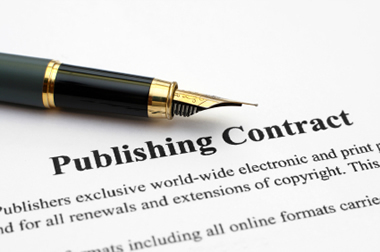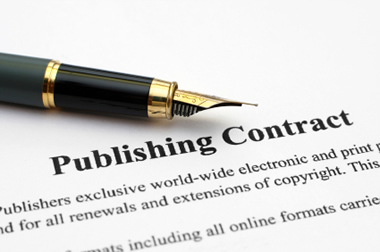In our last post we zoned in on some of the basics of Music Publishing and the key roles of a music publisher. As we move forward in this series, today we will examine the different types of music publishing agreements, as well as key factors you should expect and look out for in any music publishing agreement before you sign.
Clinique Juridique des artistes de Montreal (CJAM) categorize that writer/publisher contracts often fall under two categories, publishing and administrative. CJAM differentiates the two categories, offering that under publishing agreements, authors/songwriters/composer will sign assign a portion of their copyright in the song to the publisher (generally 50%), whereas under administrative agreements the author generally will not sign over a portion of the copyright. Rather they grant a right to administer the publication of their work for a specific period of time (CJAM, n.d.).
One important point presented by CJAM, which we believe should be reiterated, is that songwriters can only assign what they own in a song. Therefore, explains CJAM, if a one song has two authors with equal interest, neither can assign more than 50% of the copyright over the song.
Below we provide insight into three of the most common types of agreements that songwriters sign for a music publisher; referenced from Jeff & Todd Brabec, authors of “Music Money and Success: The Insider’s Guide to Making Money in the Music Business.”
- Individual Song Contract
Noted as the most common writer/publisher contract; under this publishing agreement the writer assigns to the publisher the copyright to one or more specified songs. Since the agreement only covers the specific song(s) mentioned, it allows the songwriter to work with a number of different publishers for other songs, and give each one only those songs that the publisher is really interested in promoting.
- Exclusive Songwriter’s Contract
Falling in the publishing category, this agreement ties a writer to one publisher for the term specified in the contract and covers all compositions written during that term—i.e: “the songwriter agrees to assign all composition written during a specified term, with the guarantee of a share of the income generated and usually a provision for weekly or monthly payments,” says Jeff & Todd Brabec. The authors add that “all weekly or monthly payments made to the writer are treated as advances, recoupable from the future royalties of the writer.”
To understand this better Jeff & Todd Brabec provide the following example: “if a writer is being paid $600 per week in advances, $31,200 will have been advanced in the first contract year. These monies will be deducted from any royalties that become due from record sales, downloads, sheet music, commercials, home video, television and motion picture synchronization fees, as well as from any other source of income that the publisher controls.”
- Administrative Agreement
Under this type of agreement, the writer usually does not assign any copyrights to the songs but provides the publisher with the right to administer a composition or group of compositions for a specific period of time, in exchange for an administration fee. Administration fees generally range from 10-25% of all income earned during the term of the agreement (Brabec and Brabec, 2011)
Despite the varying types of writer/publisher agreements available, CJAM states that a standard agreement should outline how the author will be paid by the publisher after royalties and licensing fees have been collected. Additionally, it should include what proportion of royalties will be held by the publisher and what proportion will go the songwriter (CJAM, n.d.).
Based on standard traditional publishing practices, the publisher will split all income received from a song 50/50 with the songwriter. However more and more songwriters, especially more established ones are able to negotiation for a higher percentage, now often 75/25 under a publishing agreement and up to 85/15 under an administration agreement, in favour of the songwriter (CJAM, n.d).
Meanwhile CJAM closes with a list of questions which every songwriter should consider when negotiation a publishing agreement. We’ve listed these below. Please visit the CJAM website for further insight.
- Does the publisher have the right to change the title of the song(s) and/or revise lyrics?
- Is the publisher required to get approval from the writer for synchronization licenses (use of music in film, TV and jingles)?
- What percentage of the money made off the song or song catalogue is the publisher entitled to?
- When there is more than one writer on a song, are the song splits clearly identified?(e.g. Songwriter XX – 33.33%; Songwriter XY – 33.33%; Songwriter XZ – 33.34%)
- How long is the term of the agreement?
We’d also like to add consideration as to whether the agreement has an exit/termination clause and provisions for audits of records.
References:
Clinique Juridique des artistes de Montreal (n.d.). Music Publishing Agreements. Retrieved from: http://www.cjam.info/en/legal-informations/contracts/91-music-publishing-agreements
Jeffrey Brabec & Todd Brabec (2011). Music, Money and Success: The Insider’s Guide to Making Money in the Music Business.
(Photo Retrieved from: http://business.songstuff.com/article/music_publishing_contracts/)












Thank you! Your submission has been received!
Oops! Something went wrong while submitting the form